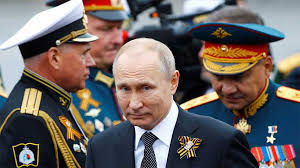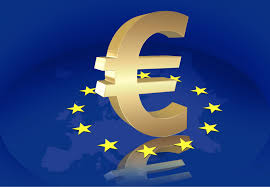On Wednesday, Russian President Vladimir Putin issued an order to partially mobilize the country’s reserves, a risky move that comes after a run of embarrassing defeats for his troops over seven months after their invasion of Ukraine.
The decision, which was regarded as a sign of weakness by the Western supporters of Ukraine, is the first call-up in Russia since World War II and is certain to heighten resentments. Russians rushed to get plane tickets to leave the country as a result of the action.
It comes as the Kremlin struggles to restock its forces and after attempts by Russian authorities to enlist additional soldiers into volunteer battalions and despite claims of rampant recruitment in prisons.
In what looked to be a covert allusion to Russia’s nuclear capacity, the Russian leader cautioned the West in a seven-minute televised speech to the nation that was broadcast Wednesday morning that he is not kidding about utilizing all available means to safeguard Russia’s territory. Putin has already warned the West against pushing Russia up against the wall and criticized NATO nations for arming Ukraine.
According to officials, the total number of reservists who will be called up could reach 300,000.
Even a little mobilization is likely to enhance Russians’ shock or cast doubt on the war in Ukraine. Shortly after Putin’s speech, Russian media reported a huge increase in demand for international flights amid what appeared to be a rush to depart despite astronomical airfare costs.
When asked what had changed since he and others previously declared there was no mobilization planned, Kremlin spokesman Dmitry Peskov said that because NATO members have been arming Kyiv, Russia is in fact engaged in combat with the alliance.
A day after Russian-controlled regions in eastern and southern Ukraine declared preparations to hold elections on joining Russia, which might pave the way for Moscow to escalate the conflict, the partial mobilization order was issued. The elections will begin on Friday in the areas of Luhansk, Kherson, and Donetsk and Zaporizhzhia, which are largely under Russian influence.
The results will almost certainly favor Moscow. The votes were deemed invalid and non-binding by foreign leaders. Volodymyr Zelensky, the president of Ukraine, called them a “sham” and “noise” meant to divert the public’s attention.
Putin’s address is “clearly a hint that he’s suffering, and we know that,” according to John Kirby, spokesman for the US national security council.
Kirby claimed on ABC’s “Good Morning America” that Putin has suffered tens of thousands of losses, has problems with command and control, poor military morale, desertion issues, and is “pushing the injured back (into) the fight.”
Only individuals with significant combat and service experience will be called up, according to Sergei Shoigu, the Russian defense minister. Only around 1% of the approximately 25 million people who meet this need will be mobilized, he continued.
Another important provision of the regulation prohibits the majority of professional troops from ending their service agreements before the partial mobilization is lifted.
Widespread worldwide condemnation of Moscow’s invasion of Ukraine on February 24 during the UN General Assembly meeting has kept up a lot of diplomatic pressure on Moscow.
On Wednesday, Zelensky is scheduled to deliver a recorded speech to the group. Putin chose not to visit New York.
Putin’s strategy carries a significant amount of danger since it may backfire by making the conflict in Ukraine unpopular at home and harming his own standing. It also acknowledges Russia’s inherent military weaknesses.
With the help of a counteroffensive launched by Ukraine this month, Russia has lost the military initiative and significant portions of Ukraine that it once controlled. Russian forces were forced to ditch armored vehicles and other weapons as they made rapid retreats due to the counteroffensive’s speed.
The mobilization was referred to as a “great tragedy” for the Russian people by a Zelensky representative.
Sergii Nikiforov, speaking to reporters, predicted that conscripts dispatched to the front lines of the conflict in Ukraine will suffer the same fate as the unprepared Russian soldiers that were repulsed in an assault on Kyiv in the early days of the conflict.
This is an acknowledgement of the ineffectiveness of the Russian professional army, which has fallen short on every one of its endeavors, according to Nikiforov.
Due to a lack of training facilities and equipment, it will likely be months before the Russian mobilization has any impact on the battlefield.
The mobilization is a sign of “weakness, of Russian failure,” according to U.S. ambassador to Ukraine Bridget Brink, and British Defense Secretary Ben Wallace agreed, calling Putin’s action “an acknowledgement that his invasion is failing.”
Dmitry Oreshkin, a political expert in Russia, warned that Russians will obstruct the mobilization by “passive sabotage,” calling Putin’s decision “an act of desperation.”
Oreshkin told reporters on Wednesday that people “will escape this mobilization in every imaginable manner, bribe their way out of this mobilization, and leave the country.”
Oreshkin predicted that the statement would not be well received by the general public, calling it “a big personal blow to Russian civilians, who until recently (took part in the conflicts) with pleasure, lying on their couches, (watching) TV. And suddenly their house is a battlefield.
The war in Ukraine, which has resulted in the deaths of thousands of people, has increased food prices globally and raised energy prices. In the now-Russia-occupied southeast of Ukraine, it has also raised concerns about a potential nuclear catastrophe at Europe’s largest nuclear reactor. Investigations into potential Russian military atrocities in Ukraine are also in progress.
Putin accused the West of using “nuclear blackmail” in his speech, which was much shorter than previous ones about the conflict in Ukraine. He also mentioned “statements of some high-ranking representatives of the leading NATO states about the possibility of using nuclear weapons of mass destruction against Russia.”
He made no mention of the source of these remarks.
I want to warn individuals who accept such allegations about Russia that our nation also possesses a variety of weapons of mass destruction. We will undoubtedly employ all available means to defend Russia and our people if our nation’s territorial integrity is challenged, Putin stated.
It’s not a bluff, he continued.
Putin emphasized the narrow scope of the ordinance for partial mobilization and claimed to have previously signed it.
We’re talking about partial mobilization, which means that only reserve members will be required to report for duty, and especially veterans with a certain military specialization and relevant experience, Putin said.
Shoigu added on Wednesday that 5,937 Russian servicemen had perished in the Ukraine conflict, a much smaller figure than the tens of thousands of soldiers that the West had estimated Russia had killed.
On Wednesday, the Vesna opposition movement issued a call for protests across the country.
“Tens of thousands of Russian men, including our dads, brothers, and husbands, will be ground up in the war’s meat grinder. What are they going to die for? What would be the cause of mothers’ and children’s cries?” the group asked.
Nevertheless, considering Russia’s strict regulations against criticizing the military, it was unknown how many people would demonstrate.



















